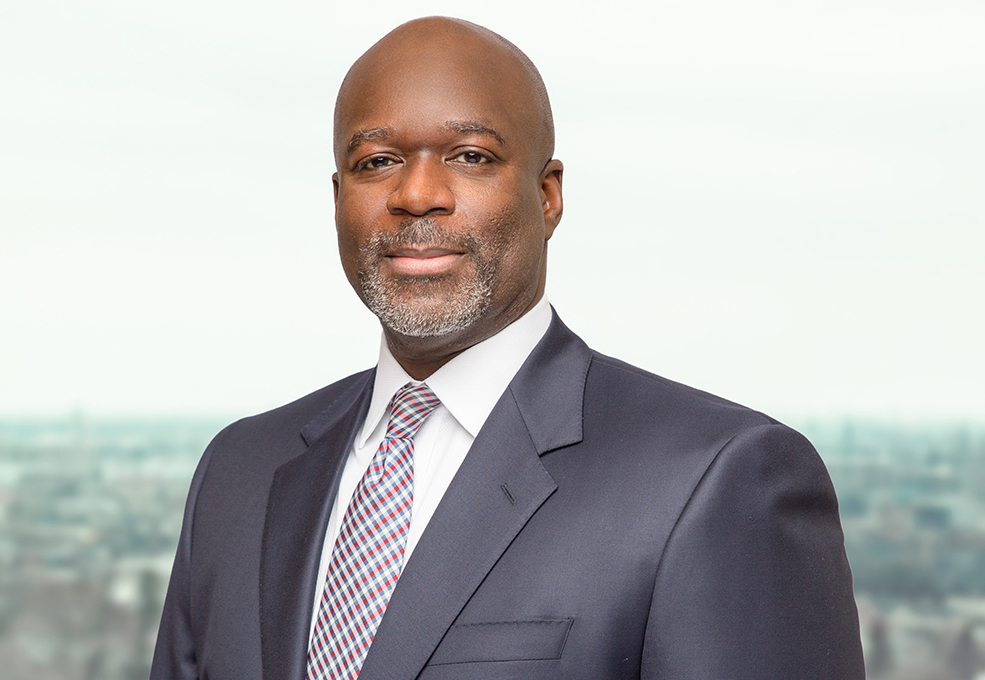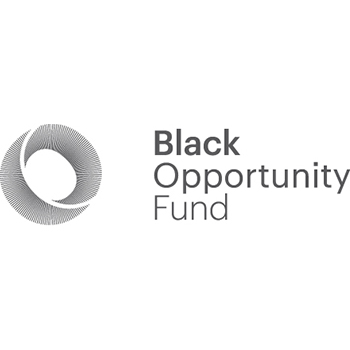When Dennis Mitchell (BBA ’98) came to Wilfrid Laurier University in 1994 to begin his undergraduate degree, he had a singular focus.
“I grew up knowing with 100-per-cent certainty that I was going to play professional football for a living,” he says. “Six knee injuries later, I’m a financial services professional.”
Mitchell is the chief executive officer and chief investment officer of Starlight Capital, an asset management firm in Toronto. In June 2020, he and some of his Black professional peers across Canada came together to create the Black Opportunity Fund.

Dennis Mitchell, chief executive officer and chief investment officer of Starlight Capital, worked with peers across Canada to create the Black Opportunity Fund.
With a goal of combatting the effects of anti-Black racism, the endowment will provide a source of long-term funding for Black-led organizations and businesses to build capacity and economic empowerment.
Laurier Campus magazine caught up with Mitchell to learn more about what it means to be Black on Bay Street and his philanthropic mission.
For people who don't know a lot about asset management, how would you describe what you do?
I think when people think of portfolio or asset management, they picture a guy sitting at a computer endlessly entering numbers into a spreadsheet or picking up two phones and yelling into both of them at the same time. There's not a lot of that. It's a lot of quiet contemplation, reading and analysis. I spend most of my time reading financial statements, annual reports, trade magazines and journals. I compare Coke to Pepsi to other beverage firms and so on and so forth.
In past interviews, you have described how uncommon it is to be Black on Bay Street and the importance of opportunity in advancing your career. What kind of opportunities helped you get where you are today?
One of the challenges with breaking into Bay Street is that I would say 70 to 80 per cent of recruiting is done through personal networks. The co-op program at Laurier helped me because it gave me a chance to get in front of Bay Street companies. I didn't look like the typical candidate they might hire, but the fact that I was a Laurier co-op student allowed me to leverage the program’s credibility. And having a Laurier alumni network helped me secure introductions to people who might be hiring. You’ve got to be able to break into these tight networks, and Laurier helps with that.
How have you seen systemic racism manifest in your workplace and industry?
I see it constantly. There are daily microaggressions, like if there is another Black person on Bay Street who is usually at a management meeting and they're not there, somebody will turn to me and say, “Hey, where's Dave?” And I think, “What, do you think I keep track of all of the Black people in the world?” Or when I’m at a gala event in a tuxedo and somebody walks up to me and hands me their coat because I look like I don’t belong. Then there are more overt examples, such as people in senior positions saying, “It's so hard to fire Black people because everybody thinks it's a racial thing.”
Being Black on Bay Street is still enough of a novelty that people remark on it and make assumptions. And it's exhausting because the smallest thing that you do is representative of an entire community. Whenever I'm in public, I've got my jacket and my tie on because I’m always representing. Other people are able to let their guard down, but I have to constantly be thinking about what people think. That's a challenge that a lot of Black people have to deal with.
As there are more and more Black people on Bay Street in positions of power, the novelty will wear off. Through our credibility and accomplishments, it will become more normalized and mainstream.
How does having a diverse workforce benefit a business and its bottom line?
Research demonstrates that there is an economic advantage for businesses with more gender diversity and an even greater advantage for businesses with more racial diversity. One person sees a problem from one angle and another person sees it from a different angle. If you have diversity of thought and diversity of problem solving, you should be able to make more optimal decisions.
As a CEO yourself, how do you and your company ensure diversity among employees?
When we began our business, we said very consciously that we were going to hire a small team of people who we’ve worked with before, who are exceptionally competent. Our white CFO hired a Black woman to head up finance and fund accounting. He hired a gentleman who's differently abled to head up client services. I hired a woman and a man of Indian descent to work with me on the investment team. And so on. We didn't say, “We're only going to hire the best people from the best schools.” We said, “We are going to hire people who fit our culture and have demonstrated their competence,” and that is what led to diversity on our team.
It is important to embrace not only diversity, but inclusion. If diversity is a fact, inclusion is a choice. We create a welcoming environment for people from diverse backgrounds and celebrate the diversity of those backgrounds so that people actually feel comfortable bringing their entire authentic self to work. Some companies will embrace diversity to tick a box and be done. Others will embrace inclusion – and they will be the ones who truly benefit from having a diverse workforce.
You’ve been on panels, given speeches and gone on television to talk about equity, diversity and inclusion. With a busy professional and personal life, what drives you to talk about these subjects?
At the end of the day, it’s helping drive society in the right direction. I want to make time for that, if for no other reason than so my colleagues have less of a struggle getting to where I am. And for someone like me with kids who may follow in my footsteps, I want to make sure that their journey is smoother as well. This is paying it forward for the next generation.

How did the Black Opportunity Fund come to be?
There is a network of Black individuals on Bay Street. We seek each other out, we socialize, we're part of common associations, and we've obviously shared similar challenges and lived experiences. This is an idea that had been percolating for a while and the catalysts were the unfortunate incidents with Breonna Taylor, Ahmaud Arbery and George Floyd last summer that really galvanized the attention of the world and exposed people to our daily lived experience. Using that momentum, we put the machinery in motion to create the Black Opportunity Fund.
What are the priorities of the Black Opportunity Fund?
We made sure that our organization is led by a diverse group of professionals and leaders so that we can credibly represent the Black community nationally. That includes diversity in terms of representation across the country, country of origin, sexual orientation and gender.
Our goal is to raise capital from governments, corporations and philanthropists and direct it into Black organizations, charities and businesses. We want to expedite the creation of intergenerational wealth in the Black community, so we are going to help Black entrepreneurs and business leaders get access to the expertise and resources they need to be successful.
We also plan to collaborate with community organizations that have been working for decades to benefit Black individuals. We want to funnel capital to them so that they can move away from endless fundraising and focus more on their mission and scaling up.
How does building generational wealth in the Black community contribute to business success?
When you think of your typical entrepreneur, you likely think of a young-ish, white male who probably has some sort of undergraduate business degree, and who probably has a network of friends and family that he can tap into for startup money. If you look at your average Black entrepreneur, they tend to be older. The reason is that in order for them to amass the capital they need to start a business, they need to have been in the workforce for a longer period of time because there is less of that friends-and-family money in the Black community.
What are some examples of specific challenges faced by Black-owned businesses?
We consulted more than 1,000 Black individuals, organizations and businesses at national town halls because we didn't want to assume that we knew what the challenges were. We wanted to learn about experiences so that we can advocate for people effectively.
The number one thing Black business owners told us was that they need access to capital. They told us about their challenges getting approved for loans, even with good credit and audited financials. They talked about lack of access to accounting and legal resources, or information about government programs and grants. The Black Opportunity Fund endeavours to create a business centre of expertise where Black businesses can come for help with bookkeeping, legal filings, applying for grants and accessing supplier diversity programs.
To learn more about the Black Opportunity Fund, visit blackopportunityfund.ca.